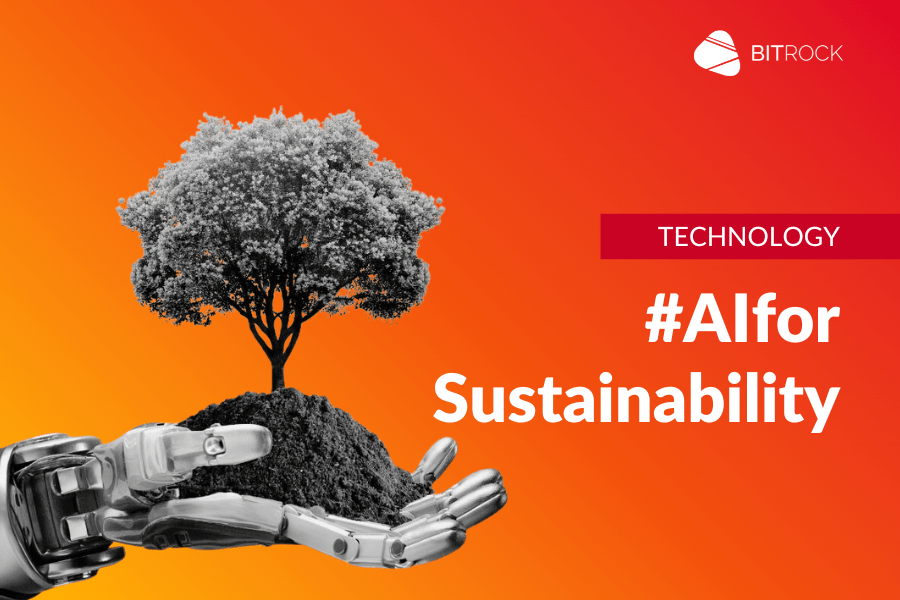AI Evolution in the Environmental Sustainability Context
In the age of digital evolution, Artificial Intelligence is emerging as a key tool not only for technological innovation, but also in the promotion of environmental sustainability.
As the world faces increasingly pressing environmental challenges, therefore, the need for sophisticated tools to analyse, predict and optimise our impact on the environment becomes crucial.
In this scenario, AI presents itself as a transformative technology capable of providing innovative solutions to address these challenges in an effective and scalable way.
The Green AI Paradigm
And this is where the concept of “Green AI” comes in: a paradigm shift in the way we develop and implement Artificial Intelligence technologies. This approach is not limited to creating more energy-efficient systems, but aims to use AI as an active tool to promote sustainability in all sectors of industry and society.
In the business context, the implementation of AI solutions for sustainability takes place on several strategic levels. Starting with the one related to energy consumption optimization: through advanced AI systems, it is indeed possible to monitor and optimize the energy consumption of buildings, industrial plants and entire cities in real time. These systems do not just collect data, but use predictive algorithms to anticipate consumption peaks and suggest optimization strategies, leading to significant reductions in consumption and CO2 emissions.
A second crucial aspect concerns resource management and waste reduction: in fact, AI enables the implementation of predictive maintenance and production process optimization systems that not only increase operational efficiency but also significantly reduce resource waste. Through predictive analysis of production quality, it is possible, for example, to identify and correct potential problems before they occur, minimizing waste and unnecessary use of materials.
The renewable energy sector also deserves special attention, where AI is revolutionising both the generation and distribution of energy. Machine learning algorithms are able to accurately predict energy production from renewable sources, taking into account complex variables such as weather conditions and specific plant characteristics. This allows more efficient management of the electricity grid and better integration of renewables into the energy mix.Logistics and the supply chain represent another area where AI is demonstrating its potential in reducing environmental impact. Through optimisation of transport routes, intelligent fleet management and efficient planning of deliveries, CO2 emissions related to the transport of goods and people can be significantly reduced.
Challenges in Implementation
The implementation of AI solutions for sustainability presents several significant challenges: firstly, it is crucial to take into account the energy consumption implications of the relevant systems. Training complex machine learning models requires considerable computational resources, which translates into high energy consumption and, consequently, a significant carbon footprint.
Another crucial challenge relates to data management and quality: indeed, the effectiveness of AI solutions is highly dependent on the availability of accurate and representative data. In the context of environmental sustainability, the collection and integration of data from different sources can be particularly complex, considering the variety of environmental parameters to be monitored and the need to ensure the accuracy of measurements over time.
Finally, there are economic considerations that cannot be excluded from the equation. Implementing AI solutions requires significant investment not only in terms of technological infrastructure, but also in the development of specialized skills and organizational change management. It is essential that companies carefully evaluate the cost-benefit of these implementations, considering not only the immediate benefits but also the long-term ones to the environment and society.
The Importance of Collaboration
Thus, the complexity of environmental challenges and the interdisciplinary nature of AI solutions, analyzed so far, make collaboration a must for success. This synergy must manifest itself at different levels and involve multiple players in the technological and environmental landscape.
At the research and development level, cooperation between universities, research centres and technology companies is crucial for accelerating innovation and ensuring that the solutions developed are both technically sound and practically implementable.
The role of government agencies and public institutions is equally crucial. Through the definition of appropriate policies and regulations, they can create an enabling environment for the adoption of sustainable AI solutions and incentivise companies to invest in these technologies. Collaboration with the public sector is also essential to ensure that the solutions developed are aligned with national and international sustainability goals.
Another crucial aspect of collaboration is developed within organisations themselves. The creation of internal training programmes and the sharing of best practices among the various corporate teams are key to building a widespread and knowledgeable sustainability culture. Companies must invest in the continuous training of their employees on sustainable AI issues, not only for the technical aspects but also to develop a deeper understanding of the environmental impact of technological solutions.
This approach creates a working environment where sustainability becomes an integral part of decision-making at all levels.
Conclusions
AI represents a powerful tool for accelerating the transition to a more sustainable future. Its ability to analyze large amounts of data, identify complex patterns and optimize large-scale processes makes it an indispensable tool in promoting sustainable practices.
As industry professionals, we have a responsibility to lead this evolution, ensuring that technological development goes hand in hand with environmental protection.Our commitment, therefore, is to continue to develop and implement innovative solutions that can make a real contribution to creating a more sustainable future for all.
Bitrock is the ideal partner to assist you in implementing your sustainable IT projects: to learn more, download the free Whitepaper on Green IT and learn more about strategies and best practices to optimize resource consumption in your digital projects and minimize your carbon footprint.

